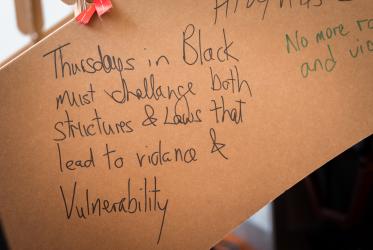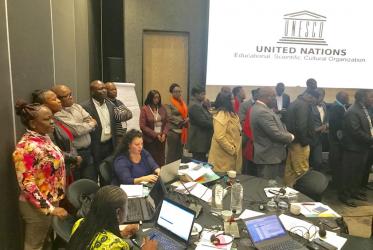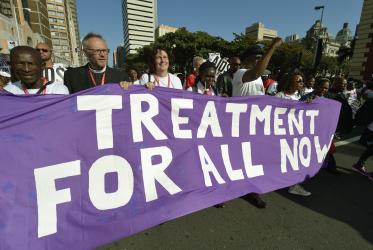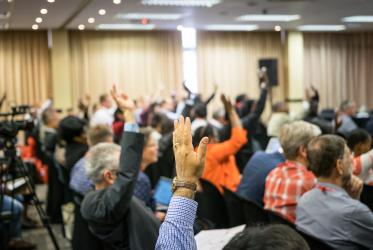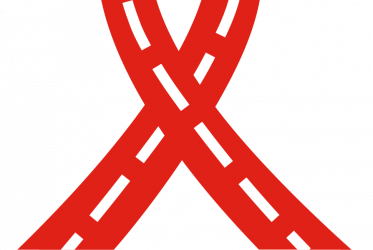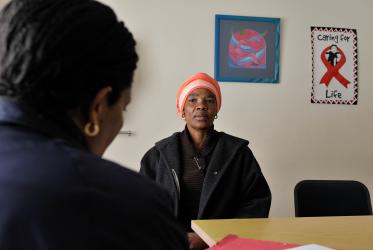Displaying 1 - 18 of 18
South Africans draw hope despite recurring challenges
16 December 2019
When you strike the women, you strike a rock
18 September 2019
A voice for peace from Down Under
10 July 2017
G7 must address famine
22 May 2017
AIDS 2016: Coverage of faith response to HIV
22 July 2016
Children are being let down over HIV care
17 July 2016
AIDS 2016: “Stigma kills more people than HIV”
17 July 2016
Local work by faith-based groups key to ending AIDS
27 June 2016
Faith at AIDS 2016: WCC preparing for faith in action
10 March 2016
"I hit the ground running": Katalina Tahaafe-Williams
16 February 2016


